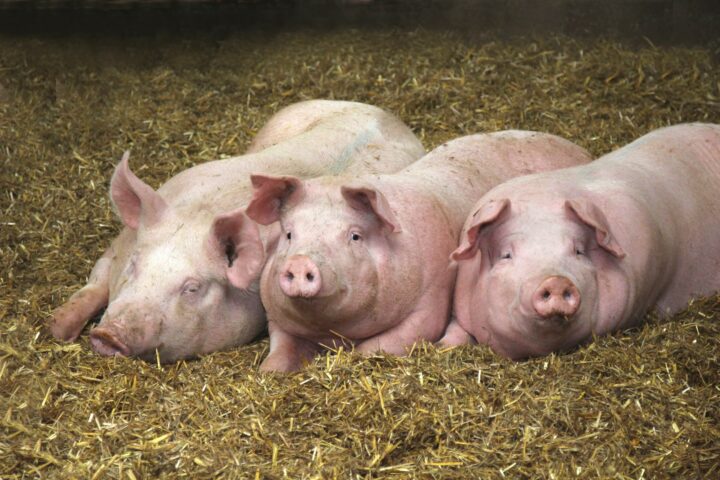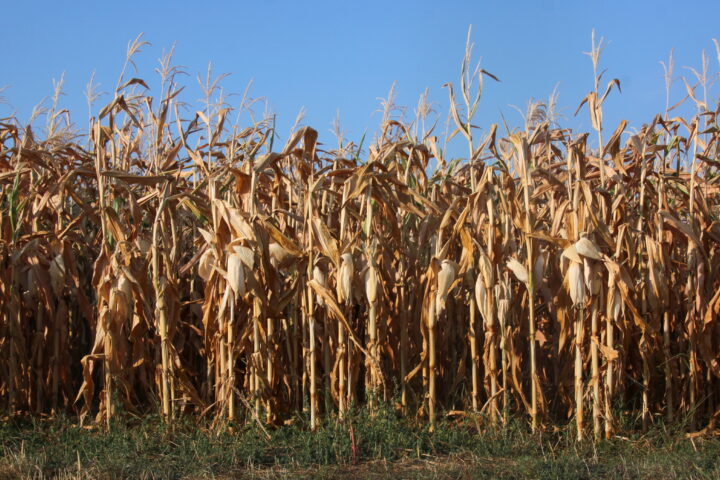
Nobel laureate endorses genetic scissors in plant breeding
In an opinion piece in the Frankfurter Allgemeine Zeitung, Nobel laureate Christiane Nüsslein-Volhard argues the case for using the CRISPR/Cas9 genetic scissors in plant breeding, even in organic farming. In her view, genome editing brings numerous benefits, especially when it comes to nature conservation and species protection.
Monday, January 24, 2022
Nüsslein-Volhard’s piece, entitled 'Common sense tells us to use genetic scissors in organic farming', pillories the EU's laws on cultivating genetically modified crops, which are still very restrictive. Genetic scissors are still a thorn in the side of politicians. 'This is despite the fact that genetically engineered strains are being cultivated on a vast scale in other countries, to their advantage, and that there has not yet been a single proven case of direct harm to humans, animals or the environment caused by these plants', the researcher says. She continues: ‘Reason demands that we approve such breeding, because apart from its economic benefit thanks to increased yields, it also plays a major role in conserving nature, preserving biodiversity and avoiding insect deaths.’
Higher yields needed
Megacities with millions of inhabitants, finite land areas, and population growth mean that increasing crop yields is a must. As a result, the use of pesticides is unavoidable in both conventional and organic farming. The Nobel laureate dismisses the belief that organic farming can feed the world’s population as 'pure romanticism'. Organic farming produces lower yields than conventional farming over the same surface area and is considerably more complex, which makes it more expensive. The scant land areas available should be cultivated sustainably with every means at our disposal.
Breeding robust varieties
However, according to the researcher, pesticides can have a problematic impact on biodiversity, especially insects. In order to reduce the amounts of insecticide used, more resistant plant strains are needed, the scientist argues. Although conventional plant breeding has achieved a lot, it is a long and costly process. Conventional breeding often involves exposing plants to nuclear radiation, which results in random genetic mutations. It can take years or even decades for the desired attribute to be achieved by chance. The researcher states that genome editing could accelerate the process of targeted plant breeding.
Efficient breeding with genetic scissors
According to Nüsslein-Volhard, the use of species-specific resistance genes – for example from wild plants – can make the breeding process faster and more targeted. For example, resistance genes from wild potatoes could be inserted into existing varieties to help them ward off late blight, a notorious problem for potatoes. The CRISPR/Cas9 genetic scissors can also be used to reactivate inactive genes in plants for the benefit of farmers and consumers. The researcher cites examples such as soybeans with healthier fatty acids, wheat with a reduced gluten content, bacteria-resistant rice and fungus-resistant varieties of wine, wheat and cocoa. Plants bred in this manner without DNA that is foreign to the species are indistinguishable from those bred using conventional methods. Another advantage is that varieties that consumers are already familiar with can be efficiently optimised through genome editing: 'Varieties that are already well established can easily be improved through gene mutation, which has proven beneficial in other species', Nüsslein-Volhard notes.
New framework needed
The Nobel laureate argues it is absurd that plants cultivated via genome editing still fall under the Genetic Engineering Act, which prevents them from being planted. Politicians’ restrictive attitudes to genome editing mean that innovative breeding methods are only used in laboratories: 'German agricultural companies have long since moved these areas of research and development to other countries, and the traditional research institutes no longer conduct plant breeding research', Nüsslein-Volhard points out. She is holding out hope that the regulatory framework will be adapted soon.
A Swiss organic farming expert is also in favour of using genetic scissors
Christiane Nüsslein is not alone in calling for genetic engineering legislation to be relaxed. Urs Niggli, a pioneering researcher in organic farming, also acknowledges the benefits of new genetic engineering processes. In the Swiss magazine 'Die Grüne', he warns of the absurd situation of conventional farmers cultivating potatoes with edited genomes without the use of pesticides – whilst organic farmers have to spray their potatoes with copper, a toxic heavy metal.
Related articles

What’s Really in Your Shopping Basket
Genetic engineering in our shopping basket? Yes – and much more often than we think. Whether it’s pasta, bread or vegetables: many of the everyday products we consume come from mutation breeding, which involves altering the genome and is considered safe. It’s high time to debunk the common myths.

Genomic breeding methods are not given a chance to prove themselves
Modern genomic breeding methods are legally classified as genetic engineering – and are therefore still effectively blocked. Yet we have been eating genetically modified plants for decades, just under the label of “classical mutagenesis.” The new, more precise techniques are regulated more strictly than the old ones, even though they are considered safer from a scientific perspective. A contradiction that urgently needs to be corrected. The EU is setting a good example.

No Pig Business: Why Testicle-Free Boars Are a Clear Win for Animal Welfare
New breeding methods are opening up new possibilities in both plant and animal breeding. They allow targeted genetic changes that can make animals more resilient, adaptable, and healthier.

Stagnation instead of progress: Switzerland risks falling behind in new breeding techniques
An overview article in Schweizer Bauer shows how much the new breeding methods are preoccupying farming circles. Once the consultation process on the federal law has been completed, a bill is expected – then it will become clear whether there is actually the political will to approve it.

